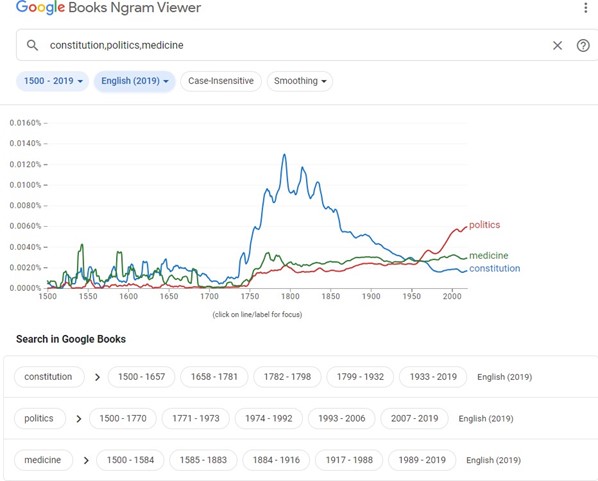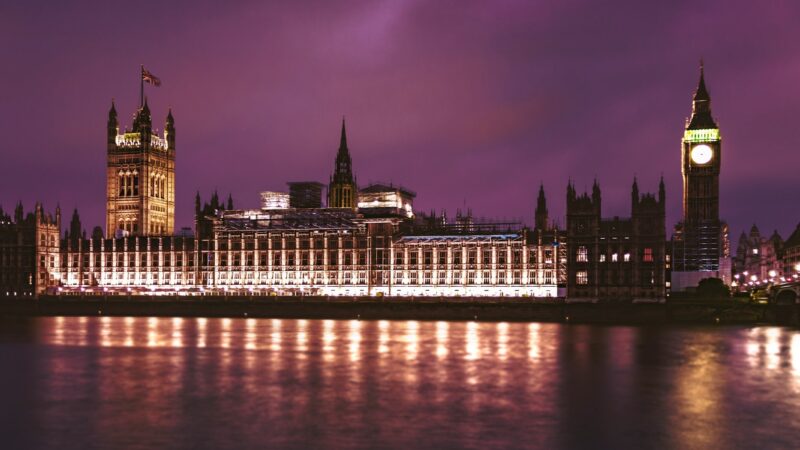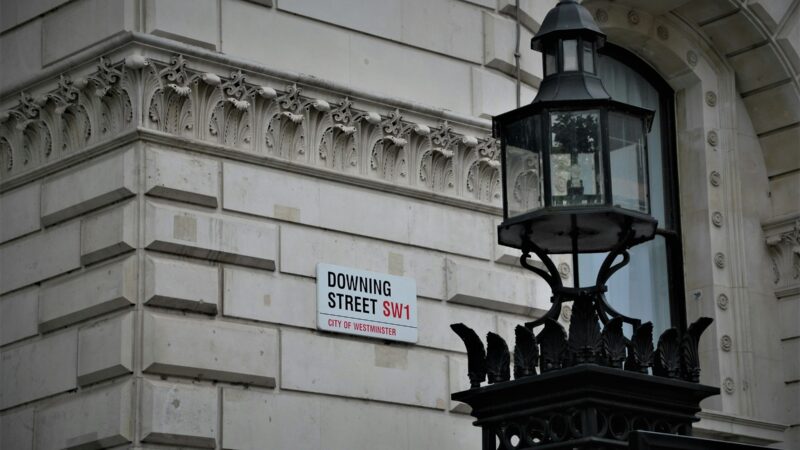Labour’s Plans for Constitutional Reform
First principles
We need to begin by understanding what a constitution is and what it ought to do. The history of the constitution as a political idea is one in which a single term came to be associated with the twin principles of the “spirit” of the people over whom politics is exercised, and the “health” of the body politic from whom the government is drawn.
It is no coincidence that the word “constitution” emerged in politics to refer to the central laws (written or otherwise) that govern a community, during a period of increased use in the medical community to mean “health”.

A simple Ngram chart shows that, whilst “medicine” and “constitution” have an established history of coterminous use, from the mid-1720s onwards – a time of increasing popularity of focusing on constitutions in the modern sense as a written set of basic rules upon which all laws should be based – the use of constitution skyrockets.
Carl Schmitt wrote in the 1920s that a constitution ought to be a reflection of the people, as they exist simultaneously above and below the political order that seeks to represent them in the world. Above, because like Hobbes’ Leviathan they tower over all political figures in judgement; below, because they are the very foundation upon which all political institutions can be built. If a people ceases to exist, then the institutions become hollow machines turning and maintaining themselves for nobody but themselves. And it must be remembered that institutions, as all things incorporated in some way, become entities in themselves.
A constitution is, therefore, simultaneously the spirit and mind of the people. The spirit, because it captures what Montesquieu attempted to identify in L’Esprit de Loi, the spirit of the laws; the truth that there is something intangible behind the tangible laws by which political institutions operate. In other words, rather than analysing the laws that existed, Montesquieu asked why those laws existed, rather than some other set of laws, in the political community in which they were practised. Why did the English have the common law, when the French had parlements? Etc.
The mind, because the constitution moves beyond unthinking instinct and into the strategic realm of forward thinking, extended temporal existence and predictable security. As Montesquieu feared of tyranny, and as Hegel recognised of Spirit in Man’s infancy, when the law becomes the domain of a single person, fear is the spirit of the legal order because there is no predictability, no consistency. Arbitrariness becomes the basis of decision making. It was not fear as fear of the government itself, but fear of the inability to know what the consequences from the government might be.
A constitution, then, speaks the unspoken sentiments of a people and does so in a consistent and unifying way.
The question that arose in the enlightenment over whether this speaking constitution should move to the page and transform from an unwritten to a written document was, of course, central to what Yuval Levin called the great debate between Edmund Burke and Thomas Paine. Whilst Paine railed against what he saw as the “tyranny of the dead” when Burke defended tradition and custom, Burke gently replied that it is the very dialogue that thrives between the living and the dead that produces freedom; just as a traveller in a forest might wander from the beaten path and find a lush grove, so too might he get lost in a swamp. Innovation and the freedom that experience brings with it is possible only when there is a point from which you begin.
Instead, said Burke, it was that very tyranny – of a dead set of people from a particular moment in time – that would be cemented in a written constitution. Rather than allowing for the continual expression and interrogation of custom and tradition that comes with an unwritten constitution, a codified one would narrow the temporal horizon of a people into a strict moment in time in an attempt to speak forever. Some of the American Framers argued that a way around this would be to revise the constitution at the end of every generation – roughly 19 years or so. Sir Roger Scruton put the problem very (and typically) eloquently when he said that the Treaty of Rome was written in a year that’s gone for a circumstance that has passed by a group of people that are dead.
The two great constitutions that emerged in the late-1700s – in America and in France – had two very different goals that determined the direction in which they moved. America, said the political historian Hannah Arendt, framed a constitution on a set of institutions that already existed expressing a people that already had a heritage. For that reason, the American constitution can be said to have achieved those two goals around which this briefing note has thus far revolved: the expression of the spirit and mind of a people. France, on the other hand, attempted to create a people through the act of constitution: the Bretons, the Provencals, the Roussillions, the Orleanais, all were to be washed away and the remnants dissolved in the universal humanity of la France. The French constitution preceded a people; the American constitution expressed one.
Yet the constitution that has thrived where even the American one has failed has – or had – been the British one.
In their obsession with formalism and written rules, most psephologists have made the mistake of thinking that Britain’s constitution, uncodified though it is, can be found in the many documents that stretch from Magna Carta through the Bill of Rights to the Act of Union to the Great Reform Acts to the Parliament Acts to the Human Rights Act. No – to do so is to mistake a man’s words for the man himself. These are not Britain’s constitution, but the consequences (and in many places, the mutilation) of the constitution itself.
What is Britain’s constitution?
It is the Parliament itself.
Parliament, in the synecdochal slip of the tongue common in modern politics, is not the House of Commons, nor the House of Lords. Not even is it the building in which those assemblies meet. Parliament, as understood by Bagehot, Dicey, Maitland and all the eulogists of Britain, exists when the three traditional branches of British government are assembled in one place: the Monarch; the Lords; and the Commons. Hence, the momentous occasion when the Monarch delivers his speech to the Lords and Commons, Parliament is said to be together.
But why is Parliament Britain’s constitution? Because, properly understood, Parliament is the voice of people in all of its aspects. The Monarch is the people embodied, a singular head of state who gives to the constitution the only missing ingredient from spirit and mind – a body. He is the body of the politic. The Lords are the people as understood by Burke, as a transtemporal entity who speaks for the country as a physical entity – hence why it was tied to land – and a spiritual entity – hence the Lords Spiritual – and a legal entity – hence the Law Lords. The Commons, finally, are the people as understood by Paine, as the vocal element of the constitution, demanding changes in the moment and transient in its demands.
The British Parliament is, and always has been, the constitution. The doctrine of Parliamentary sovereignty reflected this fact, that no power exists above Parliament – as the Monarch, Lords and Commons in one.
Labour’s constitutional reforms: past and present
This was undone entirely by New Labour. The greatest acts of constitutional vandalism – the creation of the Supreme Court, the Human Rights Act, the project of devolution, the reforms to the House of Lords – all committed by the forebears of the current administration upended this balance in a way none but constitutional historians loyal to the idea of Britain could have predicted.
Each of these deserves an invective all their own, but the simple fact is that each of these altered the operation of Britain’s constitution in different ways, but creating a legalistic straightjacket around Parliament: the Supreme Court subverted the doctrine of parliamentary sovereignty; the Human Rights Act made that Supreme Court loyal to a power beyond the boundaries and popular
control of Britain; devolution created parallel laws applying to the same citizens at different times and in different places across the country; and the neutering of the hereditary aristocracy resulted in an upper chamber dedicated to ambition, avarice and cronyism.
Thus the supreme entity of this nation – Parliament – has ceased to act as a unitary government and now must act as one amongst many. And by extension – and by design – the constitution has died.
This is the scene into which the new administration enters, ready to finish the job through solutions to a problem of its own making. One of the greatest architects of this situation, Gordon Brown, penned a document aimed at creating a “Reformed United Kingdom” by empowering the different regions of the United Kingdom to be competitors to the central government in Westminster, whilst the absurd phrase of “devolution deserts” now seeks to spread the insanity of an unequal legal landscape across the whole map of the British Isles.
These plans will make a legal reality the idea that Westminster is the English parliament and merely one amongst many. When Brown began his document by stating that “the crisis we face in Britain is not just short-term – it is deep-seated”, he did so without a hint of irony.
Why?
The reader might be left thinking, why? Why did New Labour do all of this, and why does Labour now seek to carry us further down this road?
By design or not, the New Labour government destroyed the constitution of this country because it blew apart the unity needed to underpin the idea of a people. Alongside the administrative vandalism of devolution – which exacerbated the delusions that the Scots and the Welsh, whilst culturally different to the English, are not legally the same nor subjects of the same crown – the surrendering of the nations courts’ abilities to mediate between its citizens to a foreign power only made worse the emerging sense of dual loyalty that was gestating in an increasingly multicultural Britain. The amazement that integration has ceased in Britain whilst the legal tradition of this country has been hollowed out has never yet joined the dots to arrive at the simple conclusion that integration is impossible in the current administrative state masquerading as a constitution.
Yet this is not the only reason Labour now pursues these goals. Indeed, it does so because it must. We have moved from circumstances in which a constitution might have been written to express a people that already existed – indeed, the people, understood properly as a transtemporal entity, never old or dying nor young or being born, that has occupied these islands for centuries – to circumstances in which a constitution must be written to summon a people into being.
We are France at the height of the revolution. The idea of Britain is being re-written, and re-constituted, because Britain has died. The elegists – Scruton in his England, an Elegy; Hitchens, in his The Abolition of Britain; and Murray, in his Strange Death of Europe – mourned a people that has passed away. Labour must now begin the process of constructing a new one, based on “values” and “identity”. And it must do so because it began this process 25 years ago.



Is Keir Starmer really the PM?
Are you sure? Are you absolutely sure that Keir Starmer is definitely the Prime Minister?
It wouldn’t be unusual if he isn’t. Does anyone even remember who Joe Biden is? And he’s supposed to be way more important.
It doesn’t really feel like Keir Starmer is the Prime Minister, does it? Maybe Esther Rantzen (who?) is the Prime Minister? Better do what she says. Promises were made, after all. Is Keir Starmer even sure he’s the Prime Minister? July, September, October. What a silly hostage.
OK. Enough of that.
Does he even really want to be the Prime Minister?
Whether it’s the debacle of sending Labour staff to campaign in the US, or the free gear, or obviously nepotistic appointments, there’s only one excuse he ever gives. Don’t blame me, it may look really corrupt, but it’s still just about within the rules. The rules run things, not ol’ Keir Starmer. Not responsible. The rules are. Got it. Maybe they’re the PM?
The failure to treat governing seriously is just another sign that these people are student politicians. They like the idea of governing, of being in office but not necessarily in power. They like the trappings, the pomp, the mincing about, and the throbbery but are they actually interested in the real substance of governing?
You will continue to get shallow “leaders” until the consequences match the severity of their civilisational level failures.
And they are at a civilisational level.
Another way of wriggling out of being Prime Minister is to give away all the land over which you’re supposed to govern. Bye bye, British Indian Ocean Territory. Yes, yes, overseas territory, short term lease, etc. cut the midwittery. The grug-brain/genius unity here is the unambiguous surrender of territory, which is bad.
Giving away the country is surely a sure sign that he doesn’t want to govern it?
Reparations? Don’t believe him when he says it’s not happening. Why sign to the commitment to discuss it at all, as if it’s even remotely reasonable, at the Commonwealth leaders meet up? Giving away land, giving away money. Is this what all the imminent tax increases in the budget are going toward? What is he going to entertain giving away next?
An aside, why is our government about to increase taxes to give it away to foreigners, while the likely next President in the US is promising to tax foreigners and abolish their income tax? Why can’t we have that?
Never mind Keir Starmer. And speaking of the Caribbean, does the cabinet want to want to govern this country either? Or are they more interested foreign interests as far and wide as the Caribbean, Africa, Eastern Europe, and the Middle East? What is in Britain’s interests? If you want to be a minister in a British government, shouldn’t you be totally beyond reproach? Why are otherwise obvious questions around conflicts of interest, such as dual nationality, not at all concerning? If free gear is enough to cast suspicion, why isn’t the protection, kinship, and privileges of a whole other country not even more suspicious? There are levels of security clearance you’re not allowed to hold if you have dual nationality, but you can still govern? Whose side are you on?
If they really wanted to govern, why didn’t they prepare for it?
Why do virtually no politicians spend any time honing the skills needed for executive decision making, administration, structuring, oversight, team-building, etc. etc. etc.? In what other professional walk of life would you expect to get to the top by merely being old enough, without criminal record (for at least 5 years), filing some paperwork, being gobby on TV, and winning a popularity contest among people who are also not qualified?
Does this look like a government? This post is slightly out of date, but close enough.
Really, it’s worse than this. As this is being written, the budget is coming up in a couple of days. The Chancellor of the Exchequer is in fact not even close to being a junior banking analyst. She is not an economist (anyone can call themselves an economist – the dismal science indeed), she lied about being any sort of chess champion, and it looks like the book she wrote was plagiarised.
Is it any wonder this sort of person is focussed on small and petty things like the gender of people in portraits? There’s no intelligence or imagination or frame of reference there for great acts of statesmanship.
There is only itty-bitty titties and a bob.
If you don’t want to be talked down to, Rachel, don’t lower yourself so. Or become genuinely great.
In the meantime, readers, you are governed by inadequates, by middle managers.
If they wanted to govern, they would have spent the time and effort to become capable of governing.
Let that be a warning to you too, readers, you cannot just be gobby on GB News or assorted podcasts. I see you. Sure, Kemi Badenoch is a flop, but Robert Jenrick? What are you doing? Have some self-respect!
Do you even want to govern?
Anyway, with all that, just look at the state of Labour.
Is Keir Starmer even going to last until 2029?
Photo Credit.